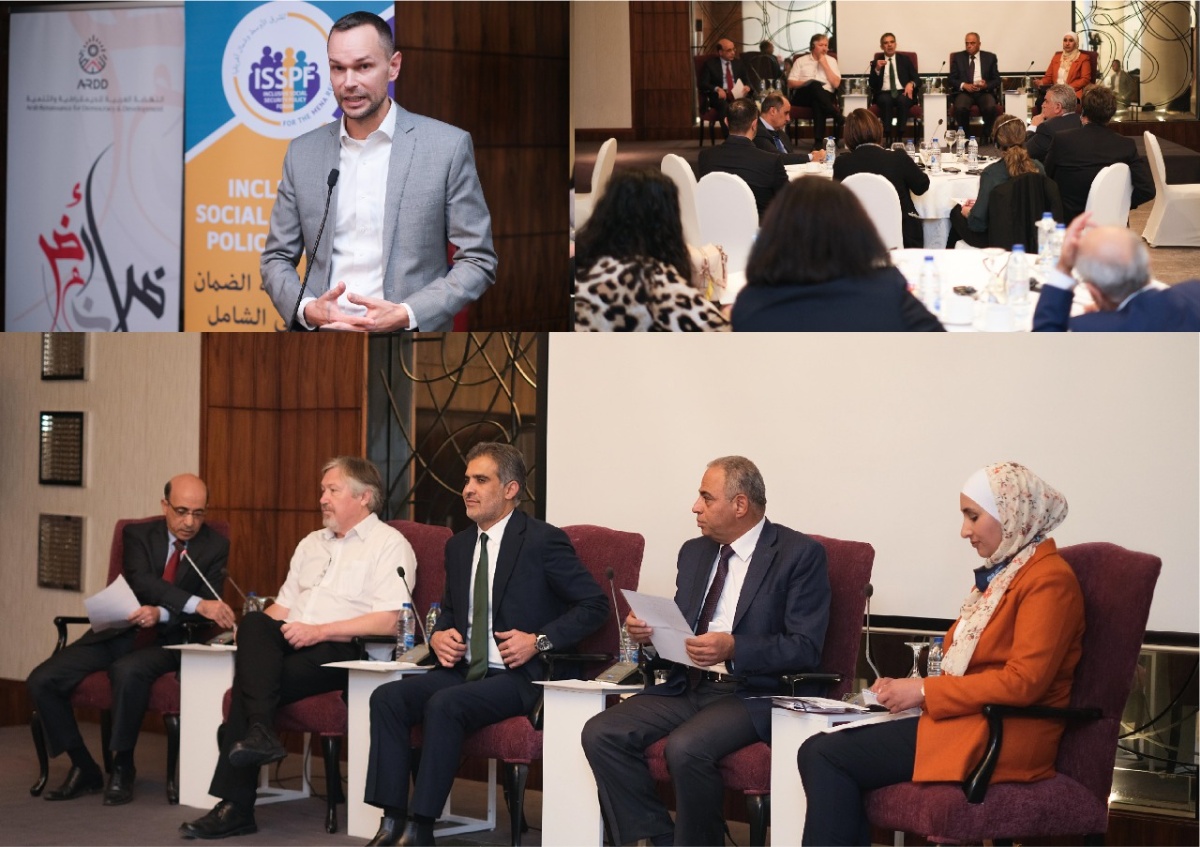The Arab Renaissance for Democracy and Development (ARDD), in partnership with Development Pathways, organized a national dialogue titled “Towards Inclusive Social Security in Jordan”; key speakers were General Director of the Social Security Corporation Dr. Hazem Al Rahahleh, Phoenix for Economic and Informatics Studies General Director Ahmed Awad, National Projects Coordinator at the International Labor Organization Gulnar Al Kurdi, and Development Pathways’ senior specialist in social policies Dr. Stephen Kidd.
International expert in labor issues and moderator Hamada Abu Najma noted that more and more people are becoming aware of the importance of social security, especially seeing the impact the Corona pandemic had on the labor market and life in general, exacerbating the already serious situation regarding unemployment, poverty and difficult living conditions.
“This national dialogue could not have come more timely, in light of calls, from the public and experts for more inclusive social security and the suggested amendments of the Social Security laws,” she said.
Al Rahahleh said that “there is a slowdown in the inclusion of all the workforce under the social security umbrella; in 2020, the Social Security Corporation covered 55 percent of workers, and today it covers 65 percent of them.”
Awad cast doubt on the figures, saying that, according to an unofficial announcement by the Department of Statistics two years ago, 48% of the workforce in Jordan does not have any form of social protection, that is, no subscription to social security, or civil or military insurance, and this percentage has increased due to the Corona pandemic.
Al Rahahleh said “the draft law amendment is based on four main axes, which are financial sustainability, motivation, response, and protection. However, the most important and most dangerous insurance imbalances in the security system, and a drain on its funds, according to published studies, is early retirement, which in Jordan has become a culture and a rule, and not an exception.”
Awad defended Jordanians’ tendency to retire early, saying that the low wages in Jordan put pressure force workers to retire early and seek new job opportunities, and thus additional income, to help them meet the exorbitant prices needed to acquire life requirements and that some articles of the Labor Law and the Civil Service System allow companies and employers to dispense with workers, especially those who are more advanced in age, so they have no choice but to retire early, with a diminished opportunity to get a new job.
According to Al-Kurdi: “Access to inclusive social security requires the government’s commitment, as it is the decision-maker and who can allocate funds from the state budget for this matter. This is what the International Labor Organization believes in, and it is an opinion that supports what experts in the economic and social affairs advocate.”
Al-Kurdi believes that the solution lies in searching for a better model to move from the social assistance system represented by the National Aid Fund to the social insurance system without the beneficiaries of the National Aid Fund being affected, and without social security, subscription being a negative incentive.
“Social security is a basic human right that is not negotiable or subject to power relations within society. It is a commitment of the state toward its society and an economic and social right that differs from civil and political rights,” he said.
Kidd encouraged Jordan to move toward inclusive social security, saying: “The matter has nothing to do with the country’s wealth or poverty, but rather with a serious intention through a multi-layered system.
“Social security is beneficial not only to the citizens, but, rather, it is of greater benefit to the state, as it contributes to the recovery of the economy and building a strong social contract between it and the citizens, restoring trust between the two parties, and taking the state to the sources of power, and this is what Jordan must do until citizens pay taxes because they believe that they will receive services that will improve their situation.”



